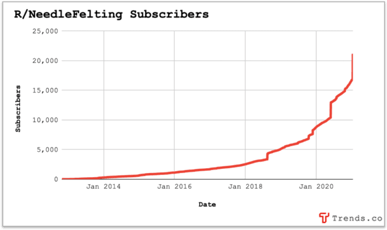nlopchantamang.com
A Fertile Market
Shân Osborn

The Signal: Since we first wrote about male fertility startups back in 2019, the space has continued to attract millions.
It’s historically a female-focused industry, but entrepreneurs are now recognizing the untapped potential in male reproductive health.
Sperm counts among Western men have more than halved over the last ~40 years. Just as many infertility cases are due to male reproductive issues as those with females.
The global fertility market is on track to exceed $47B by 2030. As male fertility solutions become more affordable and scalable, opportunities include:
Sperm Tests and Freezing: Discreet solutions are the name of the game. Startups like YO and Trak offer at-home male fertility tests.
Men can now check their sperm speed and count on their smartphones (and even watch videos of their sample sperm motility).

Sperm freezing is another high-growth area -- and a lucrative one. For an average of $275-$500/year companies will hold your frozen sperm to provide peace of mind over future fertility.
Both are uncomfortable business for the consumer: Samples need to be frozen within 30 minutes, meaning you have to race off to the lab or produce your swimmers at the doctor’s office.
Entrepreneurs who circumvent these hiccups will tap into a growing market.
Pioneer Dadi recently raised $7m to democratize the male fertility space. Their kit uses preservatives to allow at-home sperm collection without the rush.
Legacy, which provides a similar solution, just raised a $10m Series A in April.
Entrepreneurs could enter the market while it’s still in its infancy -- and compete with modern, discreet solutions as demand soars.
You could also provide solutions in collection and delivery, branding and packaging, tech support, etc. for startups in the space.
Storage facilities are another way to niche down as sample numbers grow. Sperm needs to be kept frozen at -196°C (-320.8°F). Entrepreneurs could focus on smart software that ensures optimum storage environments and provides clients with app-based updates.
Regulatory and compliance software will also be in high demand.
Historically, regulations for sperm banking were formulated to treat men with cancer, or heterosexual couples with infertility.
As the clinical landscape of sperm banking changes to incorporate single men and the LGBTQ+ community, startups (and their compliance solutions) will need to evolve with it.
Fertility Boosters: Countless apps exist for women to maximize fertility; why not for men?
Don’t Cook Your Balls (surprisingly, not a recipe blog) is an online resource for male reproductive health that had 100k+ visits in January alone, per SimilarWeb.
Swimmers offers men online fertility assessments, followed by personalized fertility-boosting tips and supplements.

While these resources are available online, no one has yet released a seamless end-to-end app solution specifically for men.
Providing fertility information and guides -- with direct access to health professionals, fertility tracking (there is such a thing as a male fertility cycle), and personalized D2C supplements -- is a huge opportunity.
Google search volumes, according to Keywords Everywhere:
- “How to increase sperm count” -- 74k/month
- “Foods to increase male fertility” -- 8.1k
- “Sperm count increase tablets” -- 5.4k
- “Best male fertility supplements 2020” -- 2.9k
Fertility as a Service: Béa Fertility just raised $1m pre-seed for their insemination-at-home service (yep, you read that right).
The startup provides a monthly subscription for double insemination kits, which involve “placing a small cup of semen close to the cervix for two consecutive days in a month.”
Early studies suggest the process increases the chance of conception by 40%-60% -- providing an alternative to costly (in-clinic) procedures like in vitro fertilization.
If clinical trials are successful, it will be revolutionary. Direct competition is an option, but hurdles still remain -- creating opportunities.
“You cannot just ship an artificial insemination device to someone’s front door and expect them to use a little paper instruction pamphlet,” Béa co-founder Tess Cosad says. “They need so much more support.”
As more startups look to the space, entrepreneurs could develop digital health experiences to complement these at-home medical treatments.

Leave a Comment